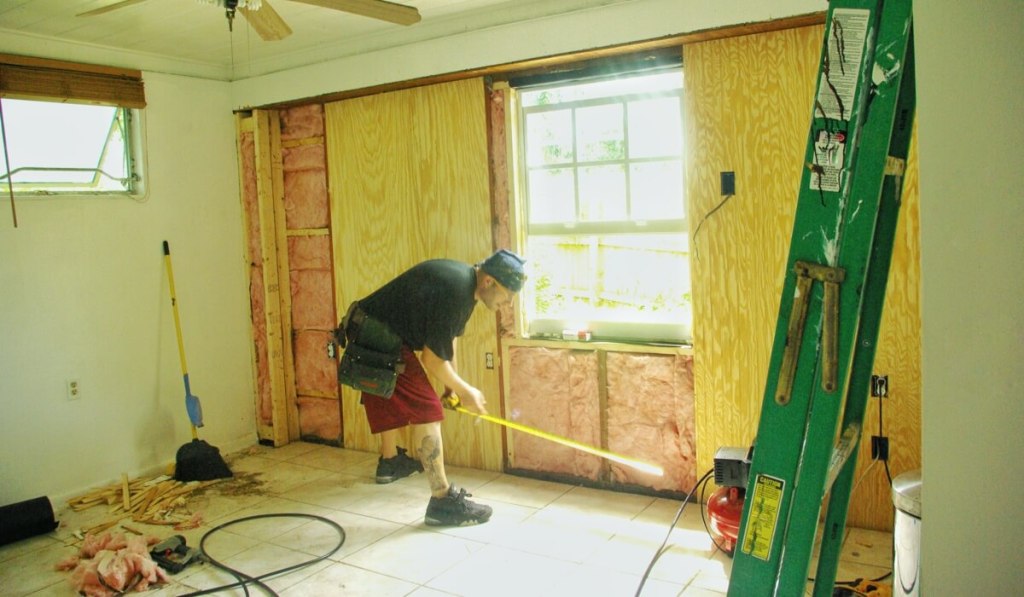Storm chasers are on the rise — and they may be trying to steal business from licensed contractors like you.
“Storm chasers” is another name for uninsured and unlicensed contractors who flock to residential areas recently hit by severe weather. They promise to fix up storm damage — usually for dirt-cheap — in exchange for an upfront payment.
Once they get that payment, they vanish — often without even starting the project they were paid to do.
With the National Oceanic and Atmospheric Association (NOAA) predicting an overactive hurricane season this year, the Better Business Bureau (BBB) is warning homeowners to beware of this increasingly unsavory scam.
Stop Storm Chasers: How to Warn Your Customers About These Unlicensed Contractors
As a licensed and insured contractor, it’s in your best interest to warn customers to watch out for these scammers.
Here are four tips to do just that — and make sure storm chasers don’t steal business from you!
1. Make your customers aware of the scam.
While storm chasers may not be a new phenomenon, there’s a good chance your customers may not have heard of this scam. That’s why the best first step is to consider making both prospective and current customers aware of these unlicensed contractors by:
- Posting an update on your website
- Sending out a letter or email to your customers
- Posting about the scammers on Facebook or other social media, especially in the days before and after a major storm
2. Spell out the warning signs that they’re being scammed.
Let your customers know about some of the more common signs of a storm chaser scam, including:
- Going door-to-door soliciting for damage repair projects
- Promising to work on a project for dirt-cheap
- Refusing to show proof of a license or insurance
- Insisting on a verbal contract or being unwilling to sign a project contract
- They want to work without a permit (this is because they don’t have a license or insurance to pull one!)
Empowering your customers with this information means they can make better choices and potentially resist the temptation to work with an unlicensed and uninsured contractor just to save a few dollars.
3. Don’t accidentally be lumped in with the scammers!
If you’ve been putting off getting your contractor’s license, now may be the time to make a move.
Here’s why: a contractor’s license shows your customers that you’re a trusted professional who has been vetted and approved by your state.
And whether you’re a handyman, plumber, or work as a subcontractor, having a contractor’s license means you won’t be lumped in with the unlicensed contractors attempting to prey on customers.
Holding a contractor’s license isn’t just important for your customers; it also protects you from undercover stings. Working without a contractor’s license is illegal in most states, so if you don’t want to get caught up in a sting operation (they happen more often than you think!), you’ll want to get your license.
Helpful hint: In most states, you may need to show proof of a general liability insurance policy to get your contractor’s license.
If you don’t have GL insurance or you’re not sure if you have the right policy, we can help with that — just click “Start Here” in the box below to compare GL insurance options from top insurers.
Applying for a Contractor’s License?
You may need to show proof of business insurance to get your license.
That’s where we come in. Compare insurance quotes today.
You also can give one of our licensed insurance agents a call if you have questions about the GL insurance requirements in your state or what a typical policy covers.
4. Check in with customers before and after major storms.
The best way to protect your customers from storm chasers is simple: Make sure you’re the contractor they reach out to first, before being scammed by budget unlicensed contractors!
As soon as there’s a major storm warning in your region, consider taking the following steps:
- Remind customers about any emergency hours you have available
- Provide them with a refresh about storm chasers
- Give advice on how to keep their home safe from storm damage
- Let them know you want them to stay safe!
Once the storm clears out, check in to see if your customers are safe and healthy. Let them know that you’re there if they need any help with storm damage repairs.
Want to warn your customers about this scam alert with just a click of a button? Forward this article via email or share on social media.
